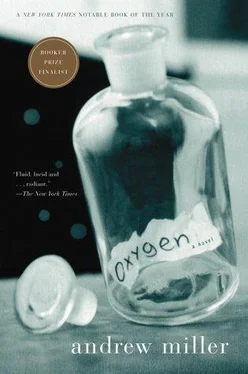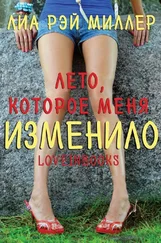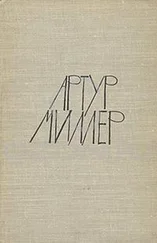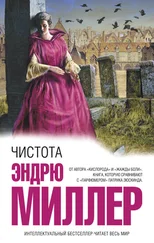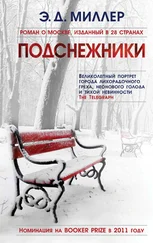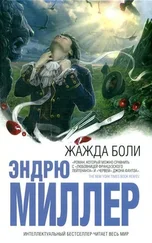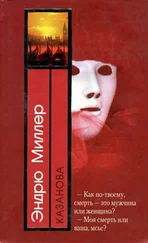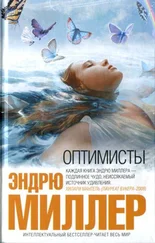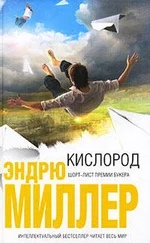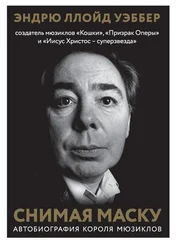He imagined them concluding the meeting with glasses of mint tea at the terrace café, after which he, László, would go home and tell Kurt everything and they would laugh and open a bottle of Sancerre and put Puccini on, and life would go its way with barely a ripple. How simple it was! And this fiction comforted him for several minutes, almost as far as the tower of the Monde Arabe itself, which, standing by the river in its cladding of steel tiles – each with an aperture like a camera’s, narrowing or expanding according to the strength of the light – was, he conceded, an admirably theatrical choice for a rendezvous.
Inside, glass-walled elevators ferried the visitors to the library or to the roof, and László ascended in the company of an Arab scholar – a tall, bearded, effortlessly superior type – and two teenage Parisiennes who wore the kind of tight cotton camisoles that might have earned them a flogging in some parts of the world. (He himself, or course, in such stern theocracies, would not escape so lightly.)
Just after four o’clock he stepped on to the terrace. A dozen people lounged against the rail, while another twenty or thirty sat at the wooden tables. The interior of the cafe was almost empty. He stood for a minute in the middle of the terrace, then, feeling awkward, foolishly conspicuous, he found a space at the rail and took the view. Notre Dame, the ‘Genie de la Bastille’, and in the distance, shimmering in a smoke of exhaust fumes, Sacré Coeur, looking oddly like the space shuttle, its creamy dome targeted at the sky. On one side of him, an oriental girl recorded the scene on a digital camera; on the other, a pair of lovers gazed out as if from the deck of a liner towards the coast of a country they had once been happy in.
He waited fifteen minutes. The lovers drowsily departed. On the far bank of the river, some curious effect of sunlight and water made it appear that a torrent of molten fire coursed behind the first-floor windows of the houses on the quai de Béthune. He told himself he was relieved that it had turned out to be nothing, that this was for the best, and after a last look around, he took the lift again, crossed the courtyard, and waited at the corner of rue de Fosses for the lights to change. Next to him, a young man in a sports jacket also waited, pulling on a cigarette and staring ahead. They crossed together, and as they reached the other side the young man touched László’s arm with a gesture so slight it might almost have been accidental. It reminded László – awkward reminiscence at such a moment – of his few casual encounters in Paris in the years after he first arrived, days when blinded by an inassuageable loneliness he had gone with strangers, using lust like a hammer to smash at the tenderness in himself.
‘Yes?’
The young man flicked the end of his cigarette into the gutter, where it span in the water among the fruit peel and the Métro tickets. ‘There is a car, monsieur. Please hurry.’
He walked ahead, and after a hesitation that lasted no more than three or four seconds, László followed him on to the quai de la Tournelle, where a grey Volkswagen was parked at the rear of the taxi rank. A second man, older than the other, more heavily built, leaned over to open the passenger door. László was ushered into the back seat and the young man sat by his companion. Two policemen in shirtsleeves strolled past, glanced at the driver, glanced at László, at the vehicle itself (which had a dent on the offside door), but kept moving, as if on such a warm afternoon it was much more pleasant to continue their conversation than stop yet another car with someone vaguely foreign at the wheel.
‘Where are we going?’ asked László.
‘Not far,’ said the younger man.
They pulled out into the traffic, driving fast where it was possible, but never too fast. László leaned back, staring out at the city, its public beauty. As they went west along the river, past Pont Neuf and the Musée d’Orsay, he tried to prepare himself, marshalling arguments and defences, rebuttals to imaginary accusations. Am I afraid? he wondered. He thought that he wasn’t.
At the Pont de l’Alma they headed south and circled round until they were on the avenue Bosquet, driving back towards the river again. Then, with a lingering look in the rear-view mirror, the driver accelerated and turned hard into the kind of street László always imagined to be inhabited solely by homesick filles au pair and widows with lapdogs. A place with no bars or restaurants and which by 7 p.m. would be deserted, shut down.
They stopped fifty metres from the end of the road, and László followed his young guide through a passageway at the side of one of the buildings to where a flight of narrow stairs wound like an iron vine up a corner of the interior courtyard. Several times the younger man stopped for László to catch him up. ‘Please,’ he said, anxious now, as if he might fail in this, the last part of his task. ‘Please…’
At the top of the building they entered a corridor with walls barely wider than László’s shoulders. They were, he realized, in one of the city’s secret places, where doors with worn handles led into rooms where any kind of life might be lived, almost invisibly.
At the second door on the right hand-side, the young man knocked with the conspirator’s three quick taps. The door was opened by Emil Bexheti.
‘Thank you,’ he said, ignoring the young man and shepherding László into the room. ‘I was sure you would come.’
‘In which case,’ said László, still husky from the climb, ‘you knew more than I.’
The room was extraordinarily small, a chambre de bonne in the shape of a blunt wedge, almost directly under the slates of the roof. Stifling in summer, bitterly cold in winter. László had done his time in such rooms; he had not thought to see one again.
In the middle of the room were three chairs – two facing one – and along one wall a single bed with a sagging mattress, stripped bare. On the table beside the bed were an alarm clock and a cellphone. From one of the chairs a young woman in a black dress, her face so pale it seemed somehow scraped down, examined László with a coolness, a hauteur, he found almost intolerable.
‘This,’ said László, ‘had better be very good indeed.’
‘But that depends on you, monsieur,’ said the woman, sharply. Emil waved her to silence.
‘On me?’ László repeated. He took the chair opposite her, and as he did so he entered again, quite suddenly, that other room in that other house where men and women had come to have their parts explained to them, street maps spread over the table top, gunfire echoing across the wintry city. And now he knew he would be asked again, told what would depend on him, not by Feri or Joska, but by a young woman whose name he did not know, and who, however well informed, could not possibly understand the character of his need. He locked eyes with her and smiled – a little fiercely, a little sadly – and because she was unable to see the origin of the smile, its long roots, she was momentarily disconcerted.
‘Go on,’ said László.
And so they began.
There was a rumour, perhaps true, perhaps no more than a high-altitude urban myth, that passengers in economy received less of the piped oxygen than those in superior classes. Larry could not remember who had suggested this to him – it might even have been Ranch – but coming round from the slough of another mid-flight doze he was inclined to think the rumour had substance, for in happier days he had travelled on the other side of the mysterious curtain and thought he had indeed inhaled a richer mix and been the better for it. Pinker and more optimistic.
He knuckled his eyes and looked round for Ella, but her place beside him was empty; nor—turning and twisting in his seat – could he see her in the aisles. They had been allotted the middle two seats of four in the central section just to the rear of the wings. At one end of the row was an American college student on his way to summer school in Oxford, a young man with troubled skin who addressed Larry as ‘sir’. On the other side was a nun, an ethnic oriental, who had crossed herself and prayed audibly during the take-off from San Francisco, for which Larry had been grateful. Like most people he had only the haziest idea of how this communal defiance of gravity actually worked and believed that at least one person on the plane needed to offer up a prayer if they were to arrive in safety. He waited five minutes, then leaned over to ask her if she had seen his daughter.
Читать дальше
